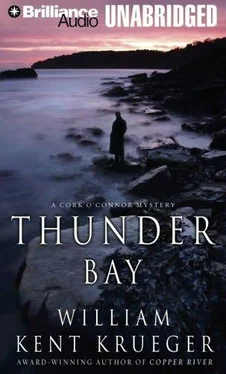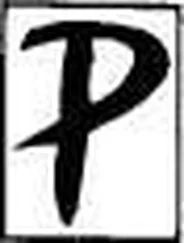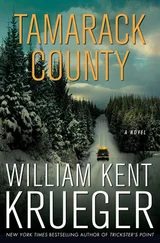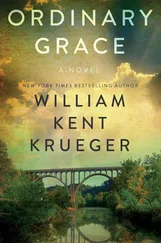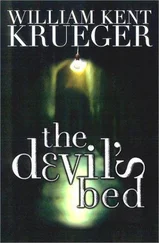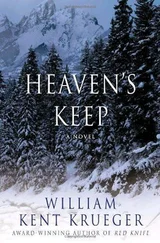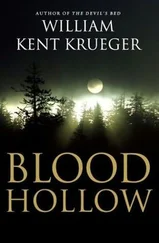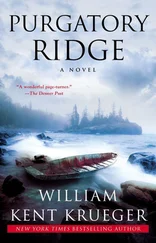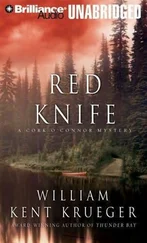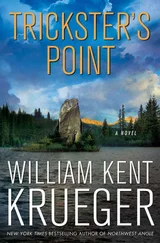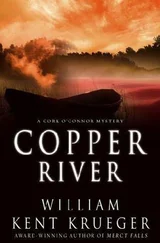William Krueger - Thunder Bay
Здесь есть возможность читать онлайн «William Krueger - Thunder Bay» весь текст электронной книги совершенно бесплатно (целиком полную версию без сокращений). В некоторых случаях можно слушать аудио, скачать через торрент в формате fb2 и присутствует краткое содержание. Жанр: Триллер, на английском языке. Описание произведения, (предисловие) а так же отзывы посетителей доступны на портале библиотеки ЛибКат.
- Название:Thunder Bay
- Автор:
- Жанр:
- Год:неизвестен
- ISBN:нет данных
- Рейтинг книги:4 / 5. Голосов: 1
-
Избранное:Добавить в избранное
- Отзывы:
-
Ваша оценка:
- 80
- 1
- 2
- 3
- 4
- 5
Thunder Bay: краткое содержание, описание и аннотация
Предлагаем к чтению аннотацию, описание, краткое содержание или предисловие (зависит от того, что написал сам автор книги «Thunder Bay»). Если вы не нашли необходимую информацию о книге — напишите в комментариях, мы постараемся отыскать её.
Thunder Bay — читать онлайн бесплатно полную книгу (весь текст) целиком
Ниже представлен текст книги, разбитый по страницам. Система сохранения места последней прочитанной страницы, позволяет с удобством читать онлайн бесплатно книгу «Thunder Bay», без необходимости каждый раз заново искать на чём Вы остановились. Поставьте закладку, и сможете в любой момент перейти на страницу, на которой закончили чтение.
Интервал:
Закладка:
Luukkonen spoke quietly to Woodrow. “I’ll come back for you and Henry directly. And I’ll see to it these men pay the full two weeks. You’ve earned it.”
Henry stood beside his uncle and watched the pickup disappear along the trail into the trees to the south. For a long time he could hear the growl of the engine and the clatter of the suspension. When he could hear it no more, he turned to Woodrow.
His uncle stared at the place where the truck and the men had gone. “Lima said they would not be back.” His eyes slid to Henry. “The hand of Kitchimanidoo.” He nodded once in sober agreement and, Henry thought, acceptance, because Woodrow had believed they were better dead.
“What now, Uncle?”
Woodrow drew a tobacco pouch from his shirt pocket. “First we give thanks.” He turned in a circle, sprinkling a bit to the north, west, south, and east, and finally dropping a little in the center of the circle. “Now I’m going into the lake and wash away the smell of the white men.” He leaned toward Henry and sniffed. “And you, Nephew, you could outstink a skunk.”
Woodrow walked to the lake. Henry stood a little longer looking in the direction the truck had gone. Kitchimanidoo had saved the white men. Why, Henry couldn’t say. It didn’t matter. He was rid of them. He would never have to see them again.
Or so he believed.
TWENTY-THREE
For the next two years Henry continued to live with his uncle on Crow Point, growing well into his manhood, strong in body and spirit, and strong in his resolve to live the old ways. He saw unhappy changes continue to creep onto the reservation. Some Shinnobs managed to purchase automobiles, and the dust they raised could be seen above the trees, like smoke from a spreading fire. In Allouette there was electricity and plans for a telephone line. There were radios and, in Aurora, access to movies. He sometimes ran into young Shinnobs who’d graduated from the boarding schools and they told him about jazz and Charlie Chaplin and dances like the Charleston and the shimmy. He heard that the Ojibwe on the Red Lake Reservation had created a lucrative commercial-fishing industry and were selling tons of netted walleye to retailers in Minneapolis and St. Paul and Chicago. White people had always believed that what they had was what the Ojibwe should aspire to. That seemed to be the growing sentiment among Shinnobs on the rez as well. As more and more whites crowded the forests, the Ojibwe, in the things they wanted and in the dreams they had, came more and more to resemble them.
There was another change, this one more personal. In the summer he turned eighteen, Henry fell in love. It was Woodrow’s fault.
“There’s a girl,” his uncle said one day when he’d returned from town. “She lost her folks years ago and went to a government school in Wisconsin. She knows your sisters there. Her name is Broken Wing.”
“Dilsey,” Henry said. He remembered her from long ago. She’d already gone to the boarding school at Hayward, Wisconsin, before he was sent to Flandreau. She was younger than he, and Henry remembered her as scrawny and silly.
“She has come back to teach on the rez,” Woodrow said. “She is staying with her mother’s uncle.”
Henry was concentrating on cutting strips of birch bark to use in making a torch for spearfishing that night. Without looking up he said, “So?”
“Go to Allouette, Nephew. See her.”
Henry couldn’t imagine why he’d want to see the girl, but he did as his uncle suggested.
He didn’t find her in town; he was directed to the mission. It was late afternoon when he arrived. The shadows of the trees at the western edge of the clearing were growing long, turning the meadow grass a brooding blue. Henry approached the clapboard building. He heard her voice first, high and beautiful, singing words to a song he didn’t know.
“ ‘Yes, we have no bananas, we have no bananas today…’ ”
He stepped through the open door into the one-room building. He was startled to find not the scrawny, silly girl he remembered, but a woman with long coal black hair and smart brown eyes. She was arranging books on a shelf along one wall of the mission. His shadow slid into the room ahead of him, and seeing it, she stopped singing and turned.
“Yes?” she asked.
“Dilsey?”
“Who are you?”
What Henry wanted to say was, The man you’re going to marry. What came off his tongue was, “Uh… uh…”
The rest of his efforts at courting weren’t much better. For all his skill in the forest, his knowledge of the plants and the animals, his legendary prowess with his rifle, he was an awkward suitor. Dilsey seemed amused by him, but not moved in the same way as he. When, in the spring of the following year, a white teacher from Chicago named Liam O’Connor came to Allouette to open a real school on the reservation, Dilsey’s true affections quickly and obviously settled on the newcomer, whom she soon married. This left Henry cold and bitter.
“You sit and scowl like an old badger,” Woodrow declared not long after. “Get up, Nephew. It is time to build.”
For the rest of that summer and into the early fall, Henry labored with his uncle to cut and lay the logs for a one-room cabin on Crow Point. The logs were cedar, and the roof was cedar covered with birch bark. Woodrow arranged for floor planks to be cut at the mill in Brandywine, which was owned and operated by Shinnobs.
When the first snow fell in early November, the cabin was finished. It was a blessing because, in the depth of the winter that followed, Woodrow fell ill. There were no doctors on the reservation. Henry turned to Dollie Bellanger, who was a Mide, a healer, to do what she could for Woodrow. The winter was long and harsh, and life slipped further and further from his body, until all that was left one overcast day in April were a few ragged breaths and his final words to Henry:
“My life with you has been good, Nephew. Do not be alone now.”
Henry buried Woodrow in the cemetery behind the mission. Despite his uncle’s advice, he remained alone in the cabin on Crow Point. There were relatives across the rez, uncles and aunts and cousins, but Henry kept away from them all. He tried to disappear into the forest, but it seemed an empty place without Woodrow. Finally he simply settled into the cabin and did not leave.
In the early fall, more than four months after Woodrow died, as Henry fished from the rocks along the shore of Iron Lake, he spotted a canoe gliding toward him from the south. In a few minutes, he could make out that it was Luukkonen, the outfitter. Although he’d had offers to guide after his uncle passed away, Henry had turned them all down. He had no need of money, and going into the wilderness without Woodrow was still too hard.
Luukkonen pulled up to shore. “Anin,” he greeted Henry, formally and cordially.
“What do you want?” Henry replied.
The outfitter stepped from his canoe and, though he hadn’t been invited, sat down near Henry. He smoothed his walrus mustache and watched Henry’s fishing line in the water.
“A man come looking for your uncle dis morning,” he finally began. “I told him Woodrow had gone to his reward and he asked about you. Wants to hire you.”
“I don’t guide anymore.”
“I told him dat. He’s pretty stubborn, dis one.”
“I don’t care.”
“I know it’s hard for you in dese woods. I imagine everywhere you go reminds you of Woodrow. But dis is different, Henry. He wants to go way up nort. Canada.”
Henry began to reel in his line. He was tired of talking to the man.
“I don’t want to go to Canada.”
“You ever been in a airplane, Henry? Dis man, he’s going to fly you up dere. Sounds pretty good.”
Читать дальшеИнтервал:
Закладка:
Похожие книги на «Thunder Bay»
Представляем Вашему вниманию похожие книги на «Thunder Bay» списком для выбора. Мы отобрали схожую по названию и смыслу литературу в надежде предоставить читателям больше вариантов отыскать новые, интересные, ещё непрочитанные произведения.
Обсуждение, отзывы о книге «Thunder Bay» и просто собственные мнения читателей. Оставьте ваши комментарии, напишите, что Вы думаете о произведении, его смысле или главных героях. Укажите что конкретно понравилось, а что нет, и почему Вы так считаете.
